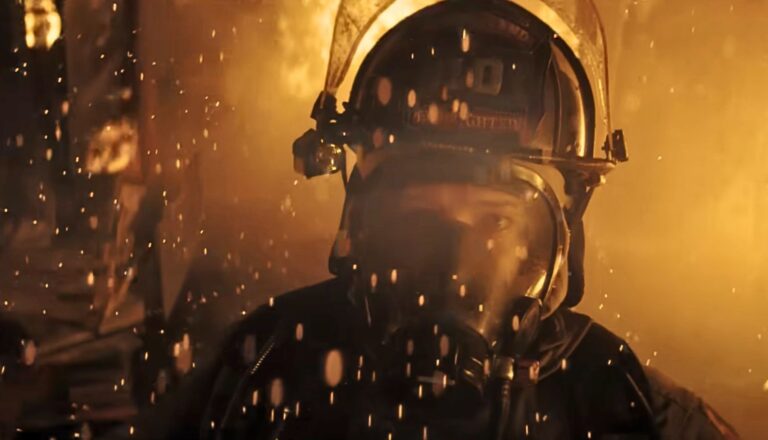
Smoke
Where there’s smoke, there’s going to be fire. And where there’s Apple TV’s ‘Smoke,’ there’s going to be content issues.
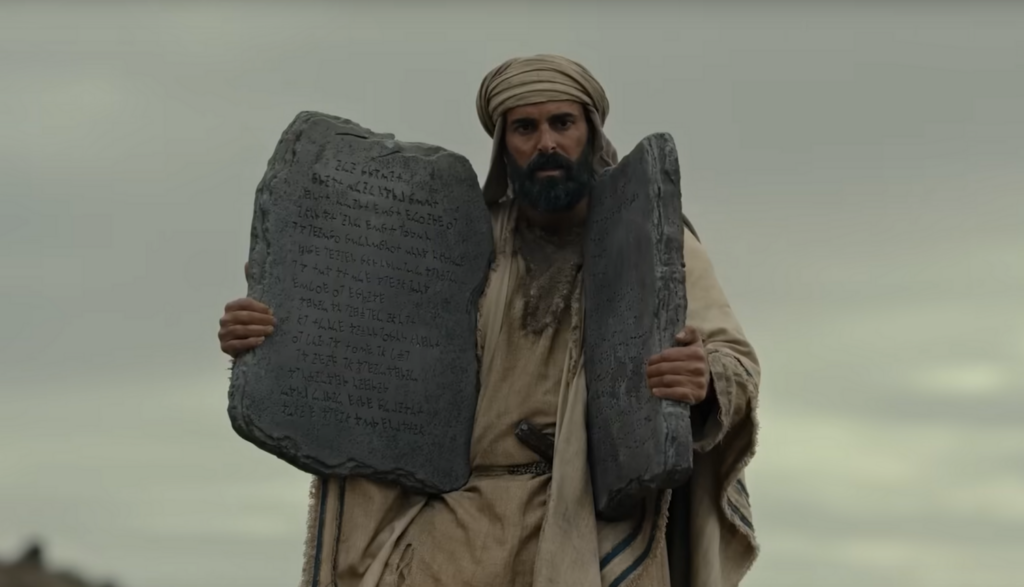
“Let my people go.”
Pharaoh may have seen Moses say it, but in Netflix’s Testament: The Story of Moses, it’s clear that Moses speaks for One who is much greater than he.
For 400 years, the Hebrews have suffered under the oppressive rule of Egypt—forced into slavery and servitude by pharaohs who worship false gods. To many of these slaves, the story of how Yahweh made a covenant with their patriarch, Abraham, to bless and prosper them is a distant memory at best. In truth, as the sweat rolls down their faces and Pharaoh demands the slaughter of their newborn male children, it seems that God has forsaken them.
But God had done no such thing. In fact, God had revealed this very suffering and its outcome to Abraham long before.
“Know for certain that your offspring will be sojourners in a land that is not theirs and will be servants there, and they will be afflicted for four hundred years. But I will bring judgment on the nation that they serve, and afterward they shall come out with great possessions” (Genesis 15:13-14).
And 400 years draw to a close, God prepares a man to be many things: a prophet, a deliverer, a lawgiver, a leader. Through Moses, God will display His glory and power, not only through crushing the Egyptians but also by saving His people.
And He will make for them a promised land in the land of Canaan.
In Christianity, Moses is among the most important people in the Old Testament. But the Netflix dramatic interpretation expands far beyond Christian influence.
The documentary (which includes plenty of dramatic recreations) brings in plenty of experts to help explain the story of Moses. Some Islamic scholars reference the Quran. Jewish scholars reference midrash (ancient Jewish commentaries on Scripture). And many scholars give their personal interpretations on aspects of Moses’ life that aren’t backed up by the Bible—interpretations that are stated with such authority that some might assume them to be true were they unfamiliar with the original biblical text.
And speaking of interpretation, creative liberties are taken with Moses’ story, too—some of which contradict the biblical narrative. And while some of these are minor details (such as Aaron meeting Moses in a building rather than on the mountain as per Exodus 4:27-28), some are much more serious, such as when Moses claims that God “needs” us, when Moses speaks with an apparition of his mother or when the documentary all but condemns God for the tenth plague.
And while the documentary generally covers most events laid out between Exodus 1 through 32 (skipping some sections such as Exodus 4’s circumcision event or when Moses and the sons of Levi slay the rebellious Israelites in Exodus 32), we don’t see anything of the historical narrative found in Leviticus through Deuteronomy, skipping many years of wilderness wandering to Moses’ death at the end of the Pentateuch.
There’s plenty that the series gets right about Moses. After all, it does still draw many elements from the Judeo-Christian account. But that story is scattered amidst interpretations that stray far away from the biblical narrative, guided by interjecting interviews that tend to only further distract from the story.
To put it simply, Testament: The Story of Moses, though it features a prominent figure in Christianity, is not a Christian documentary. Instead, it seeks to “incorporate the views of theologians from various faith and cultural backgrounds.” As such, a viewing of the documentary comes across as if it’s trying not to step on any Abrahamic religion’s interpretive toes, instead threading its own story by using sources from all three. But in doing so, Testament ends up merely dancing with two uncommitted left feet.
Note: This is a summary of the content and claims in the documentary, but it doesn’t reference every subjective religious statement. Bible verses have been supplied for sections where they may be potentially relevant for your own study.
Covering Exodus 1-4, this episode recounts Moses’ call by God to deliver the Israelites from their slavery in Egypt.
When God appears to Moses throughout the episode, He often states “I am what I am, and what I will be” (an extension of Exodus 3:14). Later, God says “I am what I am, and what I will be, and you are what you are, and what you will be.” According to the dramatization, God also frequently whispers “show them the way” to Moses over and over before finally speaking to him.
God speaks to Moses in the burning bush of Exodus 3, but the sight causes Moses to faint. This contrasts the biblical account in which Moses is depicted as curious about how the bush isn’t being burned up in the fire (Exodus 3:1-6). God also guides Moses by a pillar of cloud, which appears as a tornado (Exodus 13:21).
Moses is called the Deliverer of the Israelites and a Messenger of God. Moses has a dream about a memory he had with his adoptive mother—where he is given a necklace depicting a golden snake. Moses is further haunted by visions which call him a murderer. In the dramatization, Moses reunites with his birth mother, who recognizes him immediately despite Moses being told by Aaron that she does not recognize anyone anymore.
The documentary assumes that Moses did not know his brother Aaron and had no confirmation as of yet that he was a Hebrew. God guides Moses to meet his brother, telling him that Aaron is coming to meet him, too. In the dramatization, Aaron meets Moses in a building rather than on the mountain as in the biblical account (Exodus 4:27-28).
God provides Aaron for Moses after Moses tells God that he is not eloquent in speech (Exodus 4:10-17). And while the biblical account tells us that Aaron faithfully spoke God’s words (as communicated to Moses, Exodus 4:29-31), the drama implies that Miriam helped Aaron do this, too. We hear a reference to Serah, a daughter of Asher (Genesis 46:17, Numbers 26:46) who, according to Jewish midrashic interpretation, lived for many centuries. The dramatization tells us that Moses is a genuine prophet from God by having this Serah confirm the truth of Moses’ claims by whether he knew God’s name.
We’re told that the Midianites were, in general, likely a polytheistic people (a possible reference to Numbers 25). Meanwhile, Peter Enns, a progressive biblical scholar who does not hold to biblical inerrancy, believes that “pretty much everyone believed that many gods existed.” The documentary implies that God does not make it clear that He is the only true God.
Mount Sinai’s importance in various religions is discussed. Pharaoh compels his sorcerers to use spells. A midrash claims that, when Moses was born, the room was filled with light. We hear some references to the Quran.
Moses and Zipporah kiss at their wedding.
Pharaoh orders the slaughter of all male Hebrew babies via drowning in the Nile (something referenced in Exodus 1:22). Egyptians beat Hebrew slaves. A couple Hebrew men are whipped. Moses beats an Egyptian man to death with a brick, and we see the bloody wound on the man’s head as a result (Exodus 2:12). Later, Moses protects Midianite women, including his future wife Zipporah, from threatening shepherds (Exodus 2:17). One expert claims that the Egyptians never had “any notion of slaves” but instead had prisoners of war and servants who were forced to do labor (which sounds like slavery to us).
Note: This is a summary of the content and claims in the documentary, but it doesn’t reference every subjective religious statement. Bible verses have been supplied for sections where they may be potentially relevant for your own study.
Covering Exodus 4-11, God begins to judge Egypt and reveal His power by sending plagues upon the land.
The Lord speaks to Pharaoh, telling him that he and his empire will fall because God is the Destroyer (an interpretation of Exodus 12:23 and 1 Corinthians 10:10).
God likewise appears as golden light to Moses, saying “I am what I am, and what I will be,” and asking Moses where his faith is. He tells Moses that He will give Moses three signs which will prove to Pharaoh that the God of the Hebrews is Lord. We see the first two of these signs: Moses’ hand turns leprous and is instantly healed when he puts it in his cloak, and Moses’ staff turns into a snake when he throws it to the ground (Exodus 4:1-9). Moses asks what will happen if he falters in his faith, and God responds “If the sun or moon should doubt, they would immediately go out.”
Moses confronts Pharaoh, turning his staff into a snake, but Pharaoh’s sorcerers turn their own staffs into snakes, too. However, Moses’ staff strikes and kills their staffs (though it’s actually Aaron who does this in Exodus 7:12). Pharaoh refuses to relent, which causes Moses to doubt that God will strike him down. However, Zipporah reassures Moses that God will be faithful to do what He said He would.
Pharaoh prays to Egyptian gods in a pool of water. We’re told that, to the Egyptians, Pharaoh was seen as an intermediary between the people and the gods—a “semi-divine being” or “god on earth, essentially.” We hear references to Egyptian gods like Horus, Osiris and Isis. When Pharaoh prays to his gods, he hears the voices of them tell him that he is the one true ruler—and Christians might interpret this to mean that demons are influencing Pharaoh (Leviticus 17:7). Some commentators give their views on God hardening Pharaoh’s heart (Exodus 7:2-4).
The dramatization asserts that the daughter of Pharaoh, Bithiah, as described in 1 Chronicles 4:17, is the same daughter who rescued and raised Moses (Exodus 1:10). We’re told that Bithiah considered drowning herself in the Nile because she had had a stillbirth, though the biblical account says she was actually just down there to bathe (Exodus 2:5). A Jewish expert references a midrashic account where Pharaoh’s daughter miraculously extends her hand to a length of sixty cubits (roughly 90 feet) to reach Moses’ basket. The expert also claims that Moses burst with light as a baby.
Miriam gives Moses a cloak that belonged to Joseph to wear. Pharaoh decrees that the Hebrews will no longer be given straw as a result of Moses’ requests, and the people yell at Moses for causing this to come upon them (Exodus 5). It’s only when Miriam gives a speech about standing together that they are convinced to back Moses once again.
God eventually commissions Moses to confront Pharaoh with the plagues. We see the effects of the first nine plagues, from the Nile turning to blood to dead livestock laying in the city. People break out in painful-looking boils. Some of these plagues happen in the dramatization apart from Pharaoh seeing God cause them through Moses as the biblical account states. Many experts relate how these plagues would have shown the Egyptians how the Lord was stronger than their gods. As a result of these plagues, some of the Egyptians come to recognize the power of the Lord (Exodus 9:20), and some people beg Pharaoh to come to reconciliation with Moses. Pharaoh’s sorcerers are able to mimic the first few plagues, but they eventually cannot do what Moses does anymore (Exodus 7:22). Despite the plagues, some Israelites wonder why God doesn’t just destroy Pharaoh rather than send these plagues.
A Jewish expert claims that it was important for Moses, the savior of the Israelites, to not have been raised in the middle of their slavery and trauma, since the Israelites were described as having shortness of spirit (Exodus 6:9).
Egyptians beat Hebrews, and the two groups fight.
People drink wine. When the water of the Nile is turned to blood, Pharaoh attempts to play it down by saying that everyone will just drink wine.
Note: This is a summary of the content and claims in the documentary, but it doesn’t reference every subjective religious statement. Bible verses have been supplied for sections where they may be potentially relevant for your own study.
God releases the 10th plague on Egypt, and the Israelites prepare to leave Egypt for good.
God tells Moses that all of the firstborn in the land of Egypt will die. Whereas the Hebrews were shielded from the other plagues, they would need to paint their doorposts with lamb’s blood in order to not have the same done to them. God institutes the Passover (Exodus 12). A pastor explains that the Passover is a foreshadowing of the New Testament and Jesus as the blood of the lamb. “And it’s only by His blood that you’re going to be saved,” he says.
God tells Moses, “I am the Destroyer,” and the golden light He appears as turns into a black, menacing light. When the 10th plague comes to pass, we hear supernatural whooshing through the air, and we see Egyptians, including Pharaoh’s son, collapse to the ground, dead. We later see ghostly figures walking around, apparently those who died. An expert mentions that the Destroyer is sometimes referred to as the Angel of Death, and while the biblical title (Exodus 12:23) is never explicitly given to God, it is pointed out that the passage later attributes the act to God (Exodus 12:29).
The documentary all-but condemns God for this plague. One man claims that “the redactors and biblical authors have substituted a death angel to absolve God from some of the more fierce and some of the more vengeful character that would be associated with any god who would take the lives of children and the lives of the innocent.” (Biblically, however, no one is innocent or blameless in the eyes of God; Romans 3:23). In the dramatization, Moses falls to his knees, crying out “what have we done?” Meanwhile, Aaron expresses a more biblical view, stating that God is both the giver and taker of life.
Later, the Israelites are given gold and silver from the Egyptians in accordance with what God had promised them (Exodus 3:21-22, 11:2-3, and 12:35-36). However, Moses becomes angry when he sees the Israelites happy about the trinkets. “Is that what we are to become!?” He questions.
God leads the Israelites out of Egypt by a tornado-like cloud and a fiery pillar by night (Exodus 13:21). He parts the Red Sea, and the Israelites, though scared, faithfully pass through. Meanwhile, Pharaoh and his army pursue and are crushed and drowned by the waves. One scholar complains about this, claiming that the Egyptians were God’s children, too. However, the Bible only ever states that believers in the Lord are children of God (John 1:12, Galatians 3:26, Ephesians 1:5, 1 John 3:10). Following this, the documentary attributes Moses’ song of praise in Exodus 15 to Miriam (she does have a smaller section afterwards at Exodus 15:20-21).
A progressive biblical scholar describes how God treats Pharaoh like a “cat-and-mouse game, where the cat is chasing the mouse and has it in his mouth, then lets it go and revives it a bit, and then goes back and starts playing with it some more.”
The Israelites wander through the wilderness, and they often complain about the lack of food and water (Exodus 16:3). God supplies the camp with manna from heaven, though one scholar believes that the white substance was merely the result of “plant lice that feeds on the tamarisk tree” which exudes a resinous substance. A couple men hoard the manna, and Moses resolves to have them thrown out of camp—but Zipporah begs Moses to have compassion, and he does.
We see a brief depiction of the battle between Israel and the Amalekites as described in Exodus 17:8-16. In the biblical account, Moses requires the help of others to keep his arms raised to the sky, but in the dramatization, the narrator simply says that, though weary, Moses’ arms “remain steady.”
Moses climbs Mount Sinai to speak with God, and He tells Moses His words from Exodus 19:4-6. Weeks later, the people of Israel come to Aaron, demanding him to make them a golden calf to protect them, since they believe Moses is dead (Exodus 32:1), and Aaron does so. God threatens to Moses that He will kill the Israelites for this, but Moses begs God to forgive them (Exodus 32:9-14). When Moses returns, he smashes the Ten Commandments on the ground (Exodus 32:19-20). The dramatization skips when Moses and the sons of Levi display God’s justice on the people by executing many of the leaders of this idol worship as well as the subsequent plague (Exodus 32:25-35).
Moses recites some of the Commandments to the people as they engrave them on rocks, and Miriam later takes over for him in leading the copying process. Years pass, and Moses sees a ghostly apparition of his mother and speaks with it (which, according to Deuteronomy 18:9-12, is forbidden). The documentary ends by quickly explaining that Moses never gets to enter the Promised Land (though never expressing why in the documentary, the Bible tells us that this is a result of Moses’ actions in Numbers 20:2-13).
Pharaoh punches his servant. We see many people get stabbed or have their throats cut during the Amalekite battle. Moses claims that God “needs” all of us. When God provides manna from heaven, a scholar describes it as “now, metaphorically, at least, we have God the mother providing.”


Kennedy Unthank studied journalism at the University of Missouri. He knew he wanted to write for a living when he won a contest for “best fantasy story” while in the 4th grade. What he didn’t know at the time, however, was that he was the only person to submit a story. Regardless, the seed was planted. Kennedy collects and plays board games in his free time, and he loves to talk about biblical apologetics. He’s also an avid cook. He thinks the ending of Lost “wasn’t that bad.”

Where there’s smoke, there’s going to be fire. And where there’s Apple TV’s ‘Smoke,’ there’s going to be content issues.
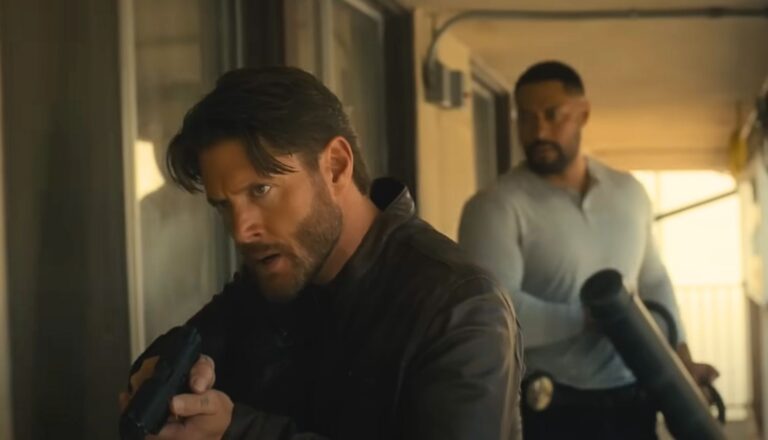
In Prime’s Countdown, Nathan Blythe assembles a task force of misfits to investigate and halt a conspiracy that puts all of Los Angeles in jeopardy.
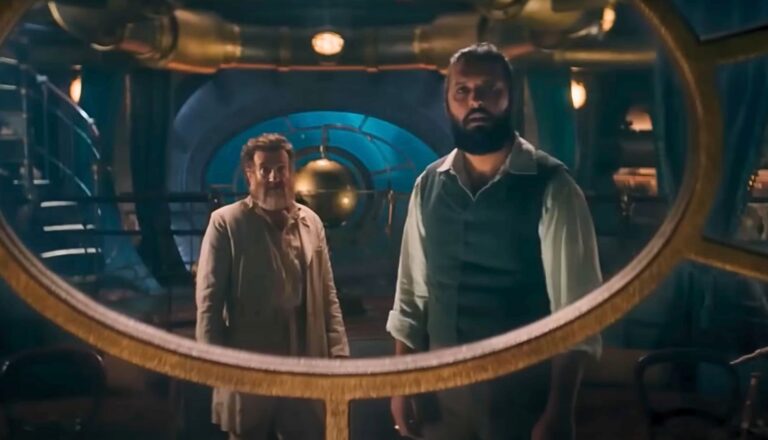
While none of the elements within this reimagining of Jules Verne’s famous book are particularly gruesome, they can be intense.
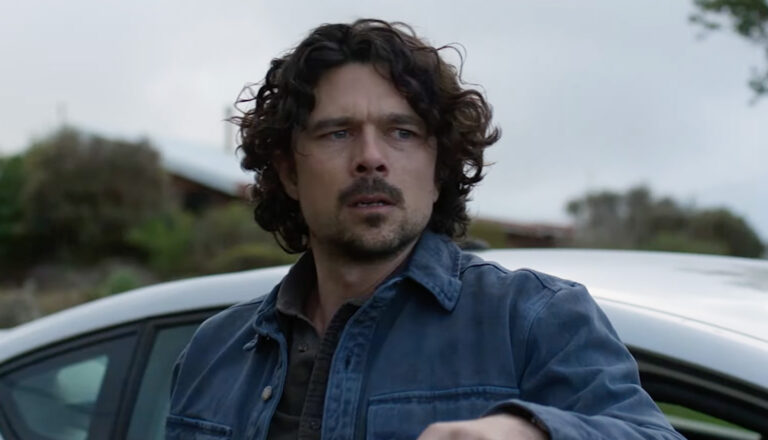
Scrublands’ Martin Scarsden is good at uncovering buried secrets, even when the secrets put his own life—and others’—at risk.